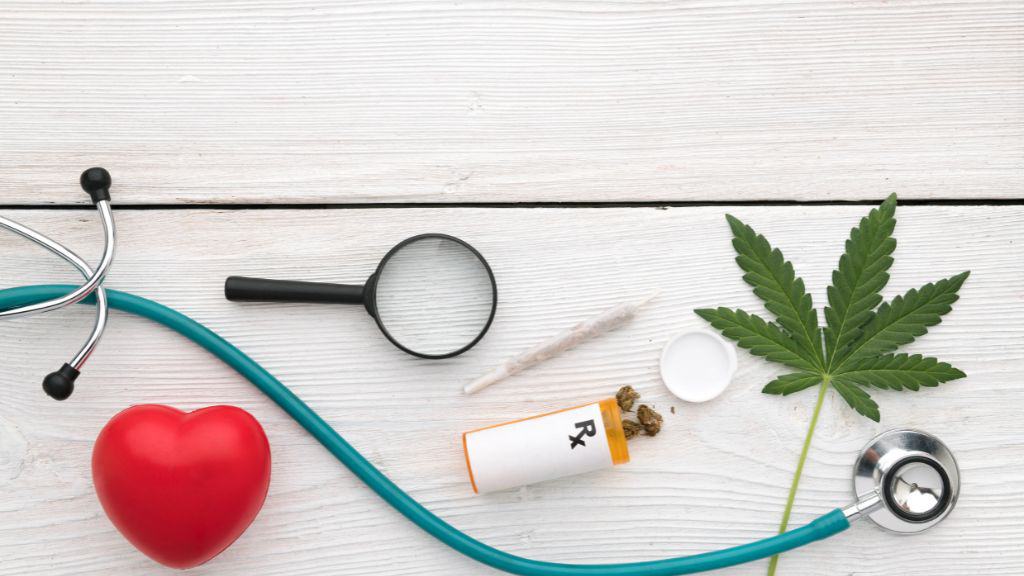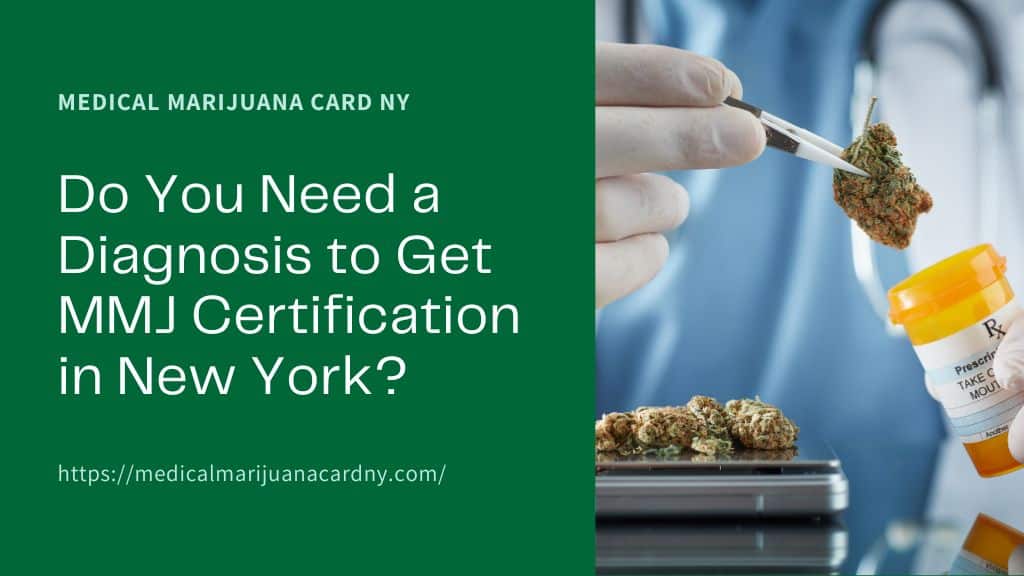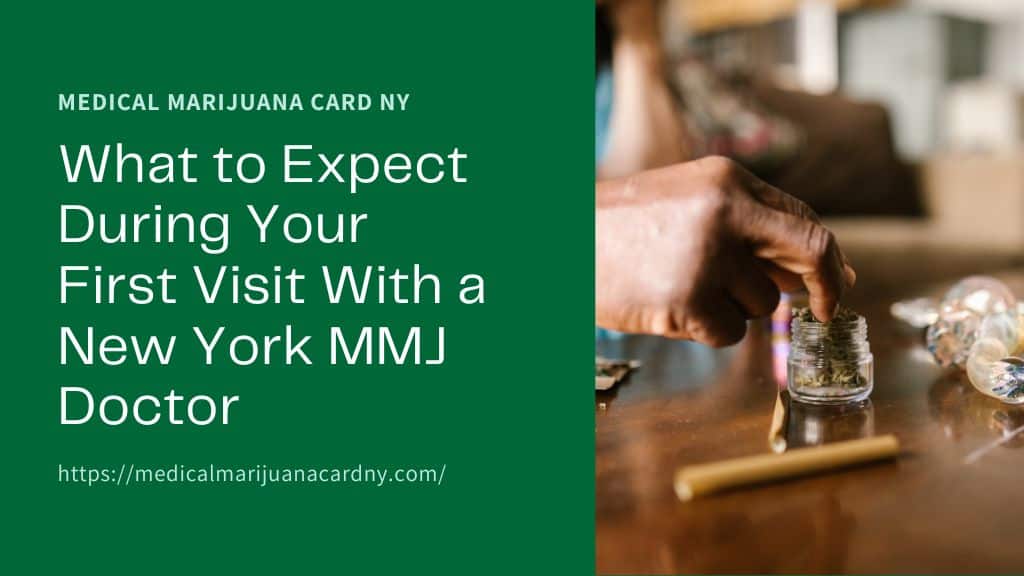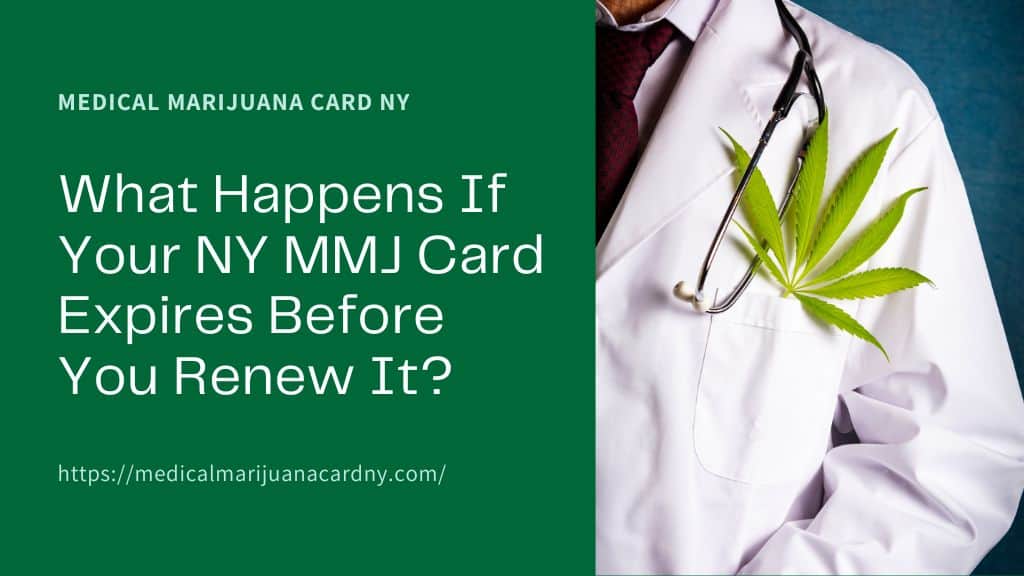The process of accessing medical marijuana has changed significantly over the past few years—especially in New York. With the increasing acceptance of cannabis as a therapeutic option, more people are curious about how to qualify for medical marijuana, especially if they don’t have a formal medical diagnosis. One common question is: Do you need a diagnosis to get MMJ certification in New York?
The short answer is not necessarily. While a medical diagnosis can support your application, it is not an absolute requirement in New York’s medical marijuana program.
Thanks to recent policy changes and a patient-focused approach, the process is now more flexible than ever. Let’s explore what this means and how you can qualify for medical marijuana even without a documented diagnosis.
Table of Contents
Toggle- Understanding New York’s Medical Marijuana Law
- So, Do You Need a Diagnosis?
- Who Can Certify You?
- The Telehealth Revolution
- What Conditions Can Be Considered?
- What to Expect During Your Evaluation
- After You’re Certified: What’s Next?
- Costs and Affordability
- Benefits of Getting Medical Marijuana Certification (vs. Recreational Use)
- Common Misconceptions About Certification
- Tips for a Successful Consultation Without a Diagnosis
- Conclusion
Understanding New York’s Medical Marijuana Law
New York legalized medical marijuana in 2014 through the Compassionate Care Act. However, the program was initially quite restrictive, allowing only certain medical conditions and requiring substantial documentation. In 2021 and beyond, reforms under the Marihuana Regulation and Taxation Act (MRTA) dramatically changed the way the state handles cannabis—both medical and recreational.
As of 2023, New York’s Office of Cannabis Management (OCM) oversees the program and has streamlined the certification process to be more inclusive. The most notable change? The requirement for a specific qualifying condition has been removed.
Now, any condition that a healthcare provider believes may benefit from cannabis treatment is eligible for certification—making it easier than ever to obtain a Medical Marijuana Card in New York.
So, Do You Need a Diagnosis?
In practical terms, you do not need a formal diagnosis on paper to get certified for medical marijuana in New York. What matters more is the consultation with a licensed medical provider who can assess your symptoms and determine whether cannabis could be a suitable treatment.
While having a prior diagnosis (e.g., anxiety, PTSD, chronic pain) can strengthen your case, it is not a strict requirement. Instead, the certification process now focuses on your current health concerns and how cannabis might help alleviate your symptoms.
This patient-centered model gives medical professionals more discretion in recommending cannabis and makes it easier for people without a formal diagnosis to access the treatment they need.
Who Can Certify You?
Only licensed practitioners registered with the New York medical cannabis program can issue certifications. These include medical doctors (MDs), doctors of osteopathy (DOs), physician assistants (PAs), nurse practitioners (NPs), and, in certain cases, licensed midwives.
To qualify, these providers must be registered with the state and have completed the required training in cannabis medicine. Many of them now offer telehealth appointments, making the entire process convenient and accessible from the comfort of your home.
The Telehealth Revolution
Thanks to advancements in digital healthcare, you no longer need to physically visit a doctor’s office to get evaluated. Several reputable telemedicine platforms now offer MMJ evaluations and certifications in New York.
Popular Telehealth Platforms
- NuggMD
- Leafwell
- Veriheal
These platforms typically follow this process:
- Online Intake Form: You complete a short questionnaire describing your symptoms and medical history.
- Video Consultation: You speak with a licensed practitioner via phone or video call.
- Certification Issued: If the provider believes cannabis can help, they issue your certification—often the same day.
This entire process can take less than an hour and doesn’t necessarily require any documentation like medical records or formal diagnoses. That said, if you do have documentation, it’s always helpful to share it.
What Conditions Can Be Considered?
Due to recent legal changes, healthcare providers are no longer limited to a set list of qualifying conditions and instead rely on their own medical judgment to decide whether medical cannabis might benefit you.
People commonly get certified for issues such as chronic or severe pain, anxiety or depression, insomnia, migraines, inflammation or autoimmune disorders, PTSD, seizures or epilepsy, cancer-related symptoms, stress or emotional imbalance, and various neurological disorders.
Even if you don’t have a formal diagnosis, clearly and consistently describing your symptoms can still lead your provider to recommend medical cannabis as a suitable treatment.
What to Expect During Your Evaluation
When you meet with a provider—either in-person or via telehealth—they’ll typically ask:
- What symptoms are you experiencing?
- How long have you had them?
- How do these symptoms affect your daily life?
- Have you tried other treatments? If so, what worked or didn’t work?
Be open and honest. You don’t need a printed diagnosis from a specialist to get certified. If your symptoms are real and persistent, the provider will likely take your word seriously.
If the provider determines that cannabis could help manage your symptoms, they will submit your certification electronically to New York’s database.

After You’re Certified: What’s Next?
Once you’ve received your Medical Marijuana Certification in New York, you can immediately begin purchasing products from licensed dispensaries—there’s no longer a need to register separately with the state, as the practitioner submits everything directly.
You’ll be issued a digital certification that includes your name and date of birth, a unique certification number, the recommending provider’s name and license details, any usage recommendations such as product types or dosages, and the expiration date (typically valid for 12 months).
This certification also automatically registers you in New York’s medical cannabis program, so you can show it—along with your government-issued ID—to any licensed dispensary and start obtaining medical cannabis products right away
Accessing Medical Marijuana Dispensaries
With your certification and a government-issued photo ID, you can visit any licensed dispensary in the state. New York has dispensaries located across major cities, including New York City, Buffalo, Rochester, Albany, and Syracuse.
These dispensaries offer a wide range of cannabis products, such as flower, pre-rolls, vapes, edibles like gummies and chocolates, tinctures and oils, topicals, as well as capsules and tablets.
Medical cannabis staff—often referred to as “budtenders”—are available to guide you in selecting the right product based on your symptoms, preferences, and experience level, ensuring a safer and more effective treatment experience.
Costs and Affordability
The cost of getting certified and purchasing cannabis varies depending on the provider and product. Here’s a general breakdown:
- Certification Cost: $39–$149 (depending on the platform)
- Dispensary Products: Varies, but typically lower than recreational prices
- State Fees: None (New York does not charge patients a fee for certification)
Some telehealth services offer discounts for veterans, seniors, and low-income patients. Be sure to ask if discounts are available when booking your appointment.
Benefits of Getting Medical Marijuana Certification (vs. Recreational Use)
Although New York has legalized recreational marijuana, there are still several compelling reasons to pursue medical certification. Medical patients benefit from lower taxes on cannabis products, making their treatment more affordable over time.
They also gain access to higher potency options that are often more effective for managing serious medical conditions. In times of product shortages, medical users receive priority access, ensuring they can continue their treatment uninterrupted.
Additionally, patients are allowed to purchase larger quantities than recreational users, which is particularly helpful for those with chronic conditions requiring consistent dosing. Perhaps just as important, certified patients often receive better guidance and support from dispensary staff, who are trained to work with medical users.
Even casual cannabis users often find that choosing the medical route offers better value, more product variety, and greater control over their health journey.
Common Misconceptions About Certification
“I Need a Specialist’s Note or Medical Records”
Not true. While documentation can help, it’s not required. Most providers can make a decision based on your reported symptoms.
“It’s a Complicated Process”
Thanks to telehealth, the process has never been easier. Most people are certified within the same day.
“It’s Illegal or Risky”
Medical marijuana is 100% legal in New York when you’re certified. You’re protected under state law.
Tips for a Successful Consultation Without a Diagnosis
If you don’t have a formal diagnosis, here are some tips to improve your chances of certification:
- Be Honest: Accurately describe your symptoms and how they affect your life.
- Be Specific: Use examples—such as trouble sleeping, anxiety attacks, or chronic back pain.
- Be Open-Minded: Listen to your provider’s advice and be willing to discuss treatment options.
- Have a Goal: Explain what you hope to achieve with cannabis treatment (e.g., less pain, better sleep, reduced anxiety).
Conclusion
So, do you need a diagnosis to get MMJ certification in New York? The answer is no, not always. New York’s medical cannabis program now allows providers to recommend marijuana based on their clinical judgment—not just a list of specific conditions.
This makes it easier than ever for people with genuine health concerns to access the relief they need. Whether you’re dealing with chronic pain, anxiety, insomnia, or simply seeking a more natural form of treatment, medical cannabis could be the solution—and you don’t need a piece of paper to prove it.
If you’re considering Medical Marijuana Certification in New York, the process is quick, easy, and affordable. And with the help of telehealth platforms like NuggMD, Leafwell, or Veriheal, you can get certified without leaving your home.



